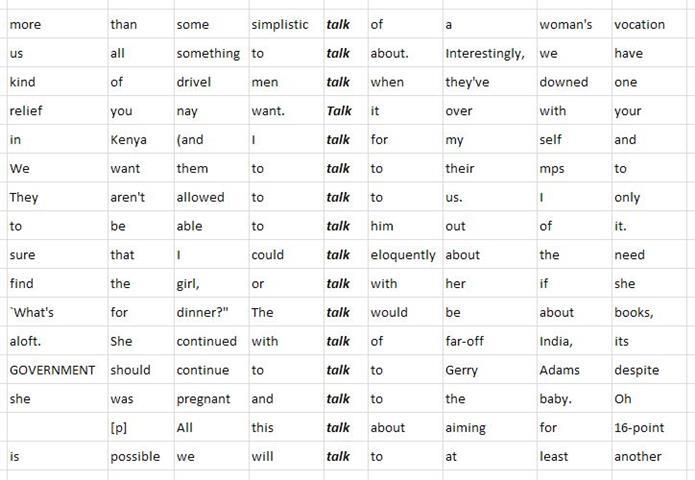A concordancer is a computer program which examines a large collection of texts and then retrieves examples matching a particular search string. This is known as KWIC or keyword in context.
They are particularly useful for working out patterns and examples of language usage and can be used very effectively in the classroom. To take a simple example, do we say that we fill out or fill in a form? To find the answer we can put both terms into a concordancer and it once test showed that whilst both are used, we are 5 times more likely to say fill in than fill out.
However, much depends on the collection of texts which are searched by the concordancer. (These texts are known as the corpus, or corpora if there are more than one.) These might be examples of British English or American English or medical texts or Shakespearian texts or academic texts or love letters or… Essentially a corpus can be a collection of any type of texts and the results you get from the concordancer will depend on where those texts come from.
See the main article, Corpus (pl Corpora).
Results from a Concordancer
A search on a concordancer will typically return a number of examples of the search string in context. Suppose, for example, you wanted to know which preposition is used most often with the word, talk. Using this as the search string, a concordancer could come up with something like this:

Looking at this you will see that the most common word to follow talk is to. Of course this is just a small sample and a larger sample or a different corpus could reveal something completely different. The point is, however, that the concordancer allows you to see how a word or phrase is used in context and from that work out rules about how the word or phrase is used.
Online or Standalone Concordancers
Although there are some standalone concordancers which can be installed on your computer, they are limited by only being able to search a small amount of texts which are found on your computer. Some larger universities and so on have them but for most teachers (and students) the best solution is to use an online concordancer.
The British National Corpus – this is a 100 million word collection of samples of written and spoken language from a wide range of sources, designed to represent a wide cross-section of current British English, both spoken and written. The link here allows for a simple search and returns a maximum of 50 results.
n-grams (Google Books Corpus) – this massive (hundreds of billions of words) corpus allows you to search through collections of books in American or British English.



0 Comments